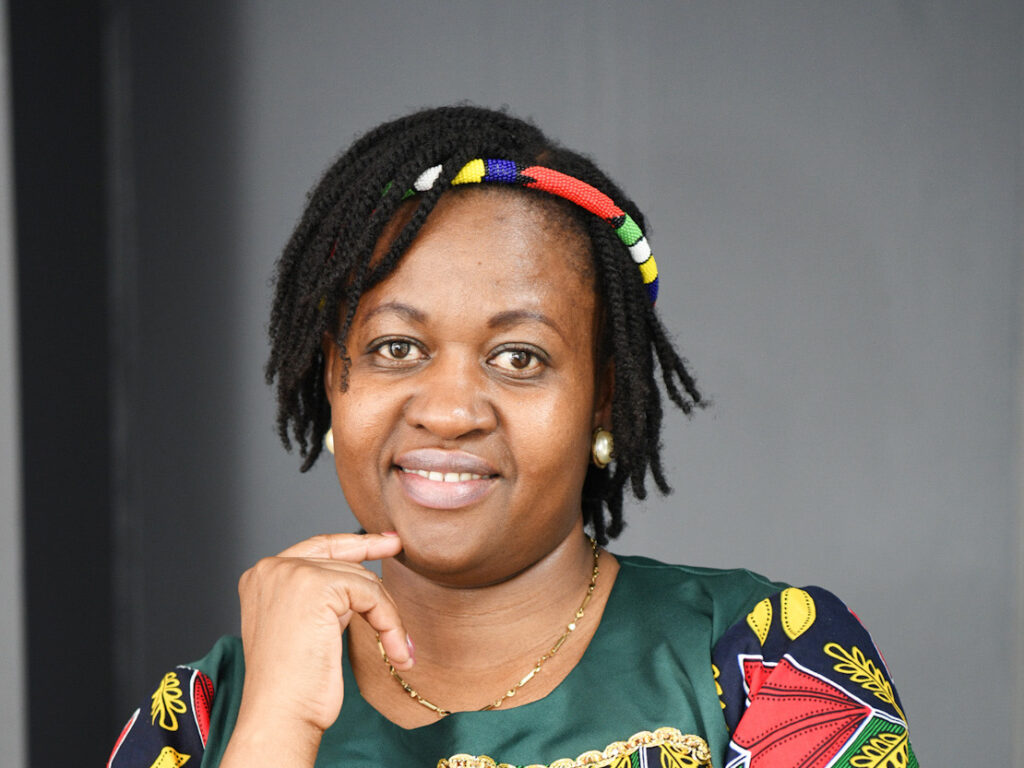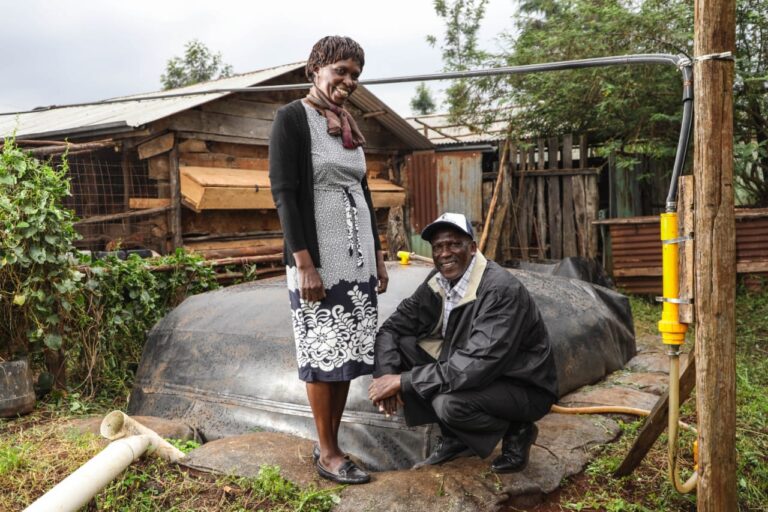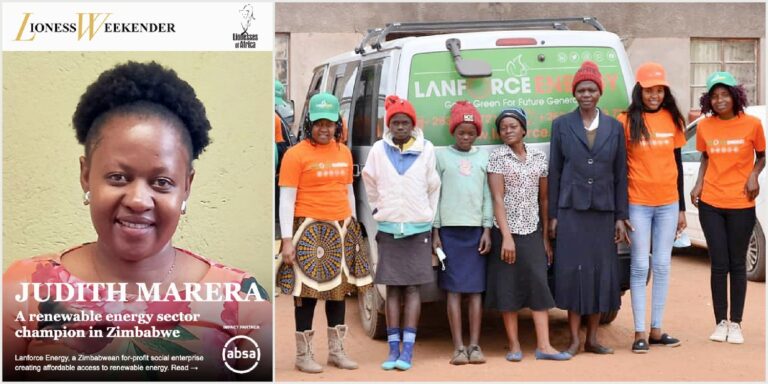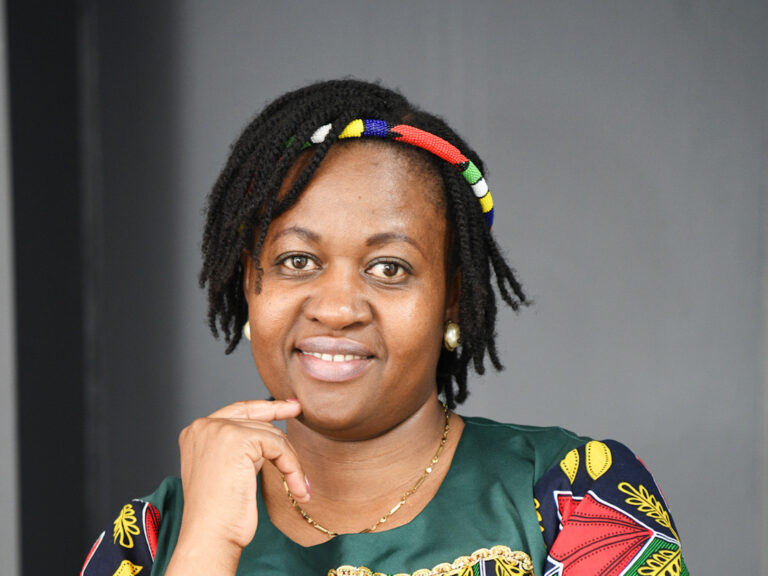Judith’s remarkable journey from facing the challenges of rural life in Zimbabwe to becoming a trailblazer in the renewable energy sector is an inspiration. Through Lanforce Energy, she is not only addressing the energy needs of communities but also combating climate change.
From trekking long distances, to enduring harsh weather conditions, growing up in rural Zimbabwe meant Judith Marera lived the reality faced by many Zimbabwean women in the quest for cooking energy.
“There were numerous challenges we encountered, such as harsh weather conditions and gender violence, where men would try to take advantage of women and children when they collected firewood in the thick forests or mountainous areas,” she recalls. Now, through her energy startup, Lanforce Energy, she is meeting the energy needs of these communities.
Soaring demand for energy in Zimbabwe prompted by high electricity costs and frequent power cuts has accelerated the destruction of Zimbabwe’s fragile forests as the country loses about 60 million trees – some 33 000 hectares of forests – every year. This prompted the country’s Environmental Management Agency to ban cutting trees for firewood.
“This left women in the communities with no other options. I realized that we could provide clean and affordable energy through biogas by utilizing waste. Instead of using cow dung for cooking, which is not a healthy solution, they could use it to generate energy,” Judith explains. This idea inspired the creation of Lanforce Energy.
Launched in 2018, the social enterprise primarily focuses on biogas production through the conversion of waste, including organic animal waste from cattle, chickens, pigs, and even human excreta, into biogas.
“We construct and install biogas plants for households, farmers, and institutions. We also provide our services on a credit basis, allowing them to pay a small initial deposit and complete the balance through monthly installments over a period of 24 to 36 months,” Judith explains.
To maximize performance and efficiency, the company has heavily invested in technology, introducing their Smart Biogas Meters. “We install these meters in the system to monitor the performance of our digesters. This technology enables us to quickly detect and rectify problems in the digester, even without the owner realizing there is an issue with the plant,” Judith elaborates.
According to Judith, this technology has significantly reduced the rate of malfunctioning digesters, which initially frustrated users when they first entered the market.
However, the technology is capital intensive and requires a high initial investment, which poses an affordability challenge for those at the bottom of the financial pyramid. To overcome this, the company is seeking funding from investors to scale their solution to disadvantaged communities that will enable them to pay for the installation of biogas plants in instalments.
“We have a significant market in Zimbabwe that truly needs our services, and we aim to capitalize on that opportunity to scale up our operations and reach all the provinces in the country,” Judith says.
Last year, Lanforce Energy received grant funding from Water Energy for Food to provide farmers with biogas technology to power their cold rooms for proper storage of agricultural produce after harvest, before it goes to the market.
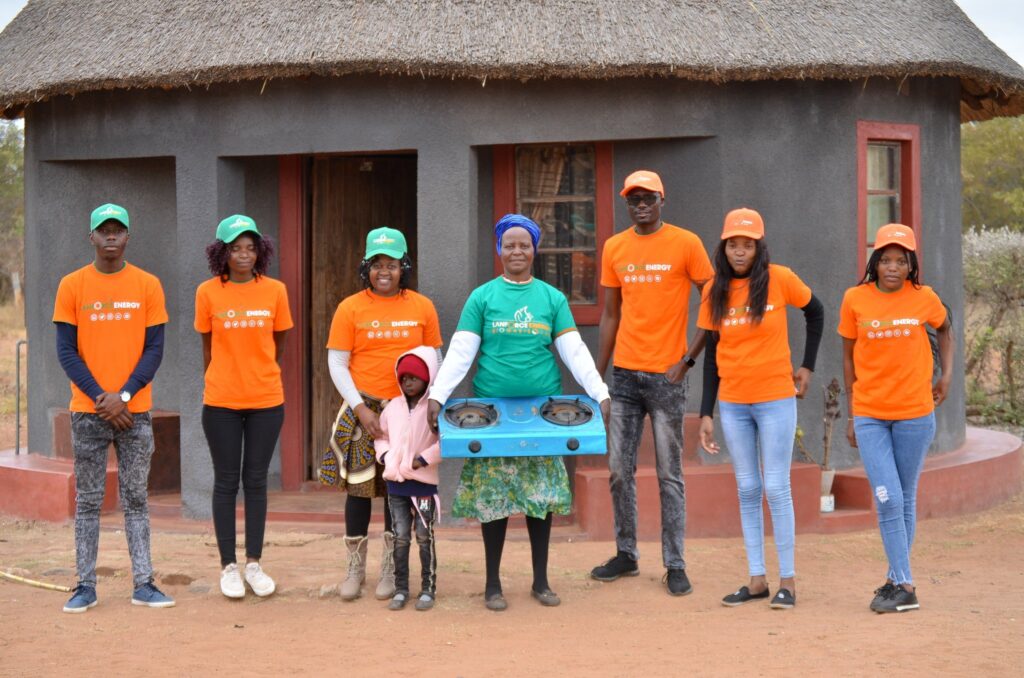
For her remarkable contribution to the renewable energy sector, Judith has received several accolades, including the 2022 Outstanding Woman in Project Management in the Renewable Sector of Natural Gas by the Chartered Institute of Project Managers in Zimbabwe. She was also among the finalists for the Women in Agriculture for the Year (WAYA) Awards and a 2022 finalist in the AWIEF Awards, among others.
With Africa’s population projected to double by 2050, its energy demands are expected to skyrocket to meet this exponential population increase. Judith believes this offers immense opportunities for growth in the energy sector, particularly with newer sources of energy such as hydrogen energy, which she considers the next big thing that could combat climate change.
“We know that other countries are doing remarkably well in terms of wind and hydrogen energy, and we would also like to explore those options. Solar energy has gained widespread acceptance in the Zimbabwean economy, with nearly every household having some form of solar-related product, be it a solar lantern or a solar-powered radio. However, there are abundant opportunities for other renewable energy sources that we need people to tap into. By doing so, we can effectively address the issue of climate change,” Judith emphasizes.
Judith believes that more women should seize this opportunity and make their mark in the energy sector. “I would love to see more women in the energy sector undertaking massive projects, just like in Western countries, because, as the African proverb says, ‘You educate the woman, you educate the nation.’ I firmly believe that women hold the solutions to elevate the African continent.”
Looking ahead, Judith envisions expanding Lanforce Energy’s operations to neighboring countries like Mozambique. She dreams of establishing Lanforce as a formidable force in the African energy sector.
“In the next five years, we aim to become the leading company in biogas production, so that whenever people think of biogas, the name Lanforce comes to mind, and even the name Judith itself,” she declares with determination.

